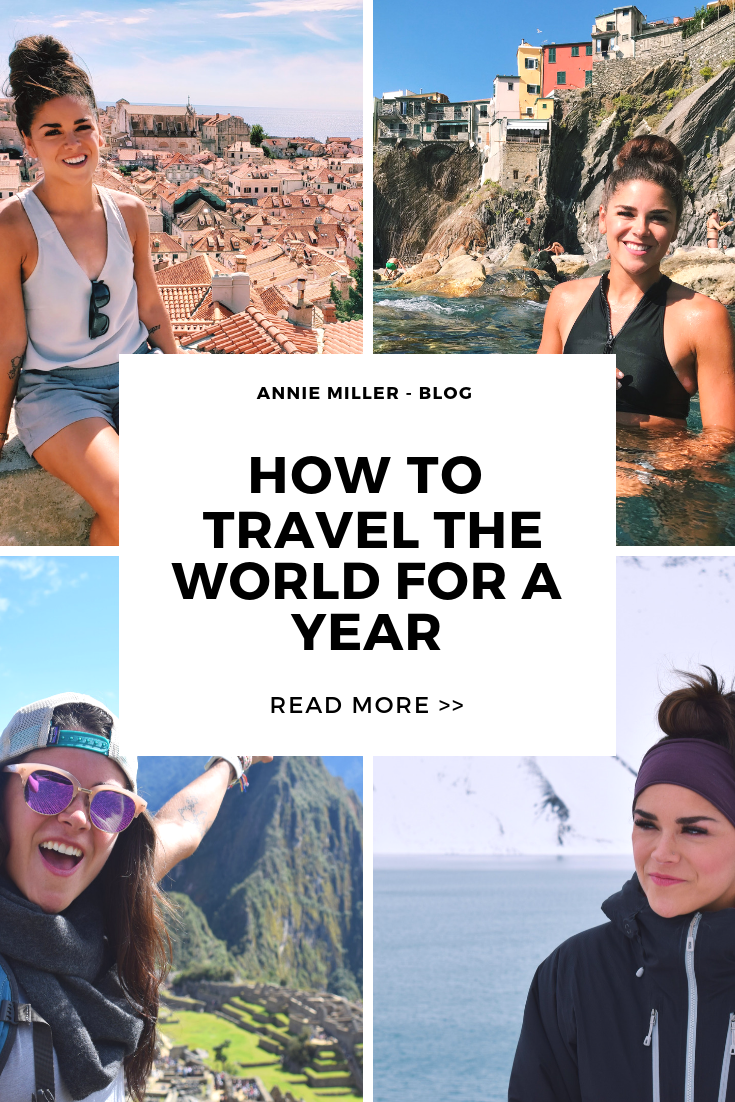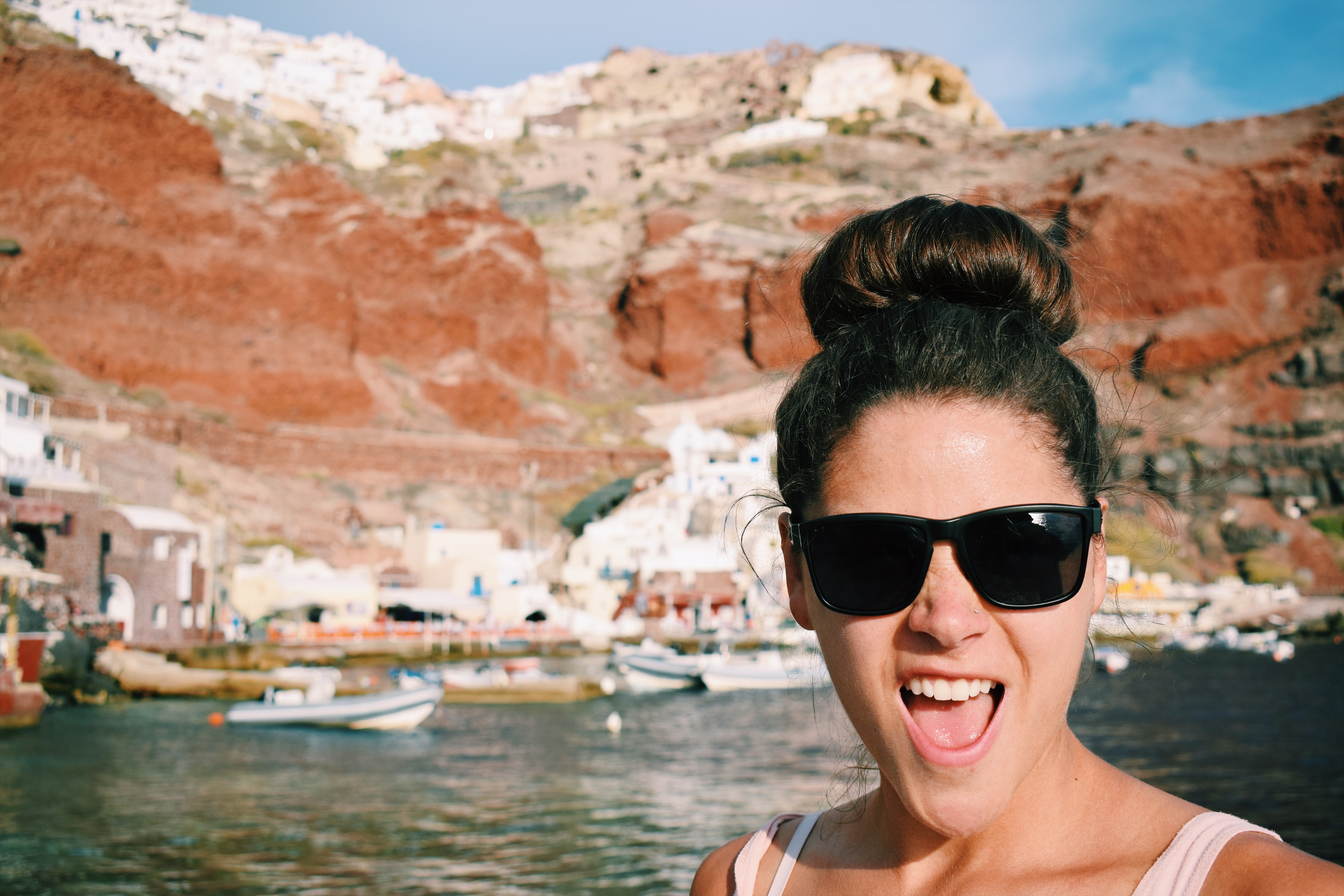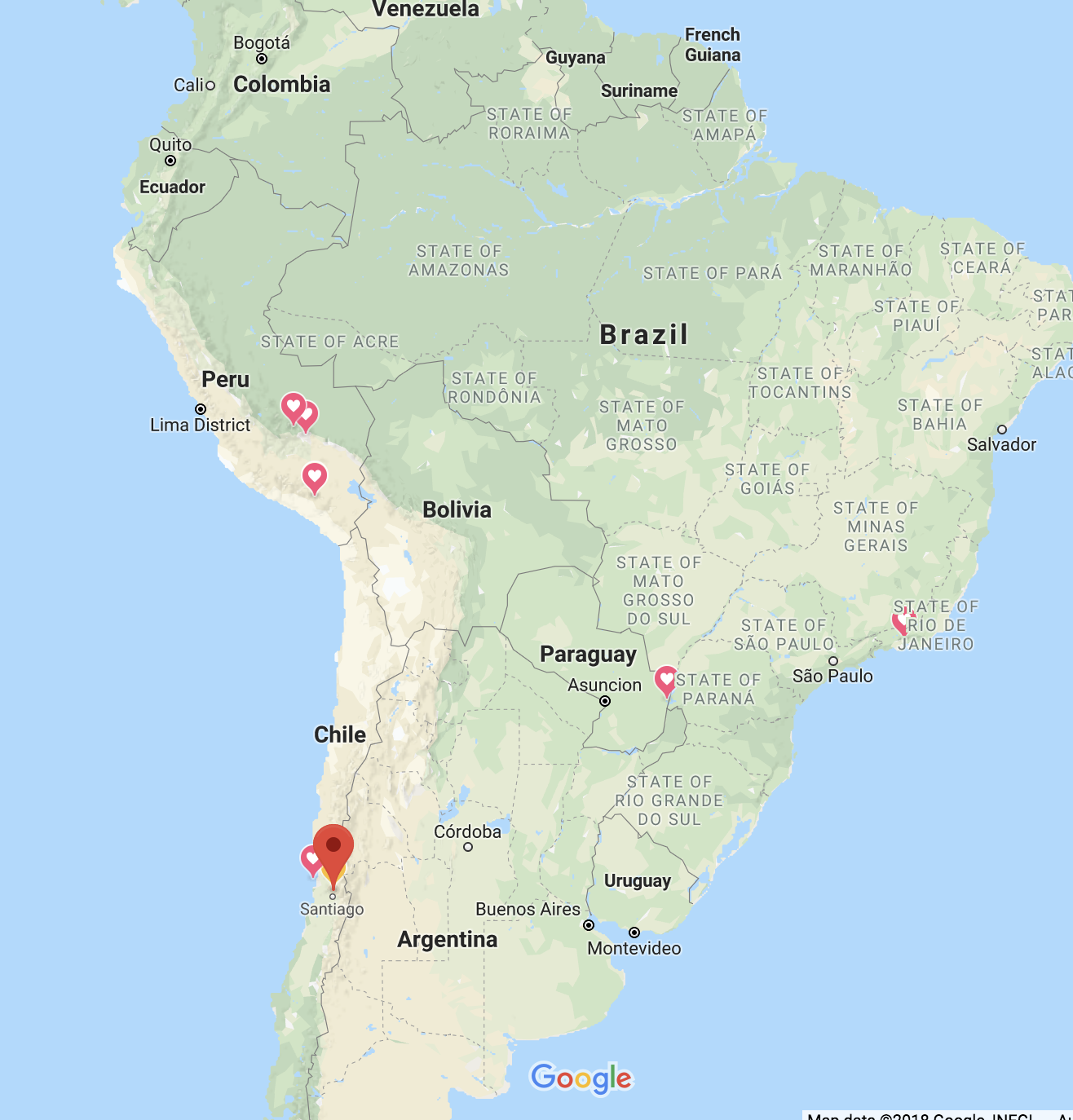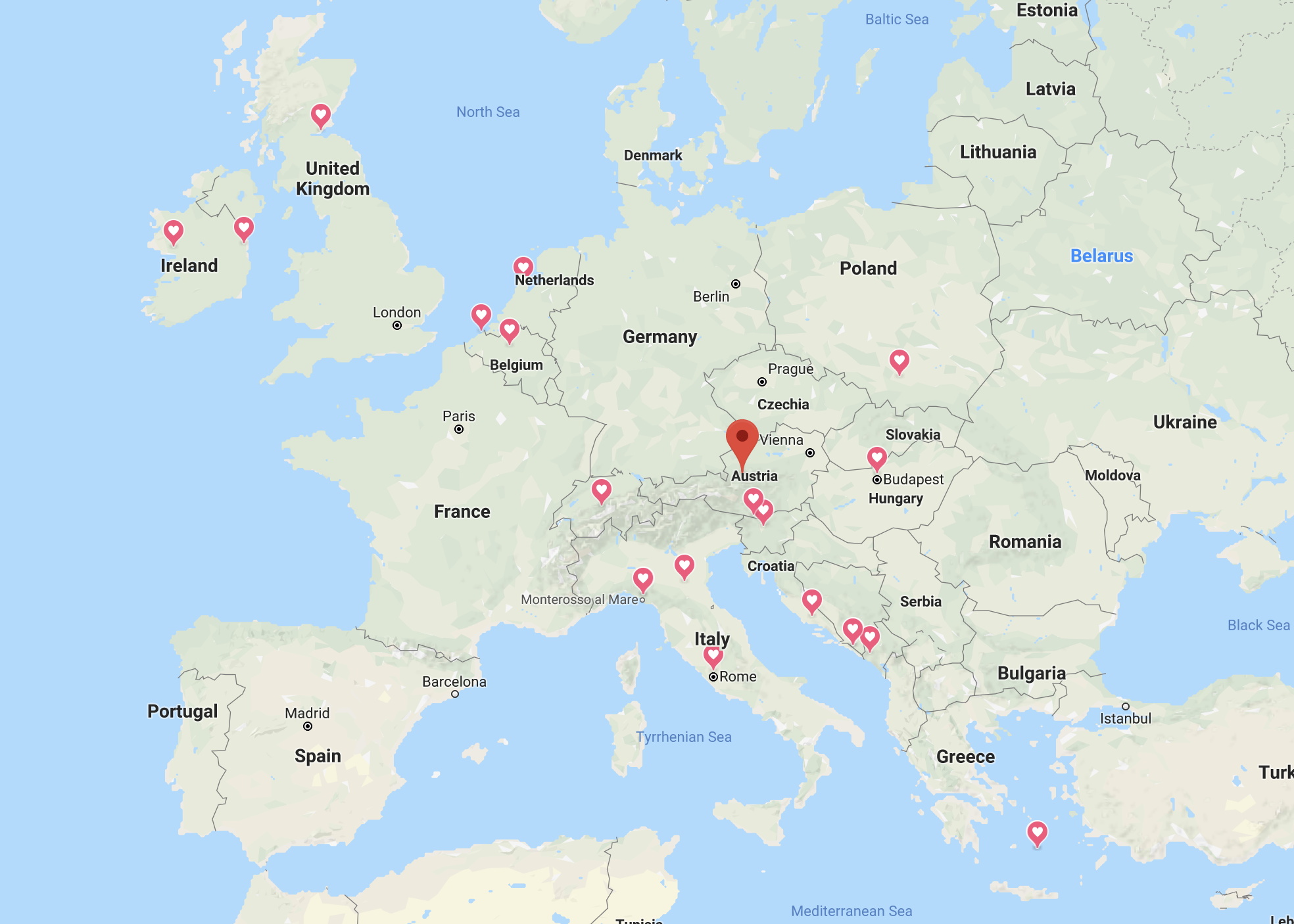the blog
welcome to
looking for something specific? find it here

How we’ve been traveling the world.
It’s old news that world travel is VERY doable these days. You don’t need to be rich and you don’t need to have any previous experience. With the internet, airbnb, and the use of wifi all over the world to search the best food, hidden gems, cheapest flights and more, it’s more realistic than ever before.
BUT, there are A LOT of things to consider before becoming a world traveler or even traveling long term.
Most questions I get are about money, where we stay, and how we actually make it happen.
There are so many ways you can travel the world. You just have to pick the one that fits your style, desires and budget.
So first up, let’s chat about the finances.
Money – You need it
Either save up, work while you travel (met tons of people reaching English – normally a 3 month minimum stay) or have some sort of sustainable income working remotely (that’s us). Before we left, we dropped 15k on accommodations (we booked 3-6 months in advance), backpacks, gear, electronics, vaccinations, flights, and other miscellaneous needs. That was before we even left…
You may not need to do this, but I just want to keep it real with you and how WE went about doing it.
So, determine what your source of money will be. Because living abroad costs money. Just like living in the states. Go figure.
Next up – Type of world travelers
Like I said, world travel is more realistic than ever. BUT you need to determine what TYPE of travel you’re looking to do.
We have encountered three general types of travelers. You may be a mix, and that’s okay. The important thing is that you’re prepared.
World vacationers:
People with the deep pockets who are basically tourists for a year or more. Nice resorts and hotels, all the tours, none of the street food. Everything is planned always and you have an agent meet you everywhere. Savings or business owners (is who we met anyway).
The world wanderer:
No plan is the best plan. These people just buy a one way ticket and let destiny lead the way. It’s typical for this type of traveler to have an “idea” of where they want to go, but their heart won’t be crushed if they end up somewhere else. They also book a hostel for the night the arrive somewhere and then find more long term housing when they arrive. Also not us. Met a lot of these in South America! Budget travelers to the max. Staying in hostels and living that duck and dive life. Common for these people to get a job wherever they are for the time being.
The world traveler:
Us. When we set out to Travel the world, I couldn’t find ANYONE who was doing it like a mobile digital nomad (in my opinion). Or not the WAY that we wanted to. We are somewhere between the world vacationer and World wanderer. Stays in hotels or Airbnb’s because they want their own space. Eats the street food, but loves some fine dining. Does the occasional tour but would prefer to explore solo. Is pretentious to an extent but refuses to associate with behaviors of typical tourists (entitled and culture-less). Has housing and transportation planned for at least 3 months in advance, but no plans for the time we stay somewhere. This is us.
Which one are you? You need to know before you start planning. This will HIGHLY influence the income or savings you’ll need while abroad.
Another factor that can impact the mula you need to have available is WHERE YOU WANT TO GO!
Location and currency rates
Because I am working on the go, I need a few things – to be most places for a good chunk of time (a month), and good WiFi (this was a tough one in Peru). My goal was to try and get gym memberships but that was way way way easier said than done overseas. Praise Jesus or Rio De Janeiro’s amazing running boardwalk and outdoor gyms.
So where do you want to go? This is of course a huge part of travel, seeing and doing the things you want to see and do.

In planning a round the world trip you start to realize how massive the world is and how little you’re actually going to see. If you’re traveling faster, you’ll get to see more obviously. It will also cost you double or more to travel this way – more transportation and much higher lodging costs, plus you’ll be exhausted. You get 45-70% off Airbnb when you book for 28+ days. For us it was always cheaper to stay a month and take weekend trips to other areas than to book in multiple places for shorter times. But you do you.
Two things to consider with your destinations when budgeting: currency rate (can be seasonal – Europe in MAY-AUG is much different than FEB) and then how much something actually costs there. Just because the US dollar is “strong” somewhere doesn’t mean it’s a cheap location. We found this to be true in Santiago, Chile. Brazil is supposed to be expensive for South America. It was comparable to Peru (which is a poor country for south America) and the US dollar was 4.01, stronger than in Peru as well. Always check for yourself rather than what you read on a blog {wink}. And like I said, currency rates change daily in some countries, and annually in others. So I suggest checking on xe.com for your locations.
So, where will you begin? And what direction do you go from there?
Below you’ll find our trip from:
- Santiago, Chile
- Arequipa, Peru
- Rio De Janeiro, Brazil
- Rome, Italy
- Santorini, Greece
- Cinque Terre, Italy
- Bologna, Italy
- Split, Croatia
- Dubrovnik, Croatia
- Kotor, Montenegro
- Hallstatt, Austria
- Grindlewald, Switzerland
- Bruges, Belgium
- Brussels, Belgium
- Amsterdam, Netherlands
- Dublin, Ireland
- Galway, Ireland
- Edinburgh, Scotland
- Budapest, Hungary
- Krakow, Poland
We’re currently in Budapest, and will finish out our first 7 months in Poland, then head to Southeast Asia.

Below is the road trip portion of our trip in Europe. We leased a car for one month from Peugeot. The road trip included Cinque Terre through Amsterdam.

You may find that some places won’t be able to make the cut. Timing is a real thing when traveling the world. For instance we wanted to see Patagonia but ended up being in Chile in the dead of their winter. So Patagonia was a no go.
Do you want to avoid tourist season? This is always our goal, but with world travel becoming more and more accessible, tourist seasons are getting longer and longer.
Do you want to just follow nice weather? This is MUCH easier as far as packing goes.
Once you have your top places and route, START BOOKING. Like ASAP. Get the process going. Make it real. Pick a start date, and pull the trigger.
For housing, we suggest booking.com and airbnb.com
Use our code for airbnb. We found it is ALWAYS cheapest to book as far out as you can for lodging.
For flights, I suggest sky scanner and kiwi. WE don’t get a kick back, these are just the best cost effective sites we’ve found. Kiwi allows you to see the months at a time so you can determine the cheapest buying window which we LOVE.
The next big thing is YOUR STUFF. Where will it go? Are you storing it? Selling it? If you own a house, rent that shit out. You can do this through Airbnb as well. You’ll need someone to be the stand in host and have a cleaning hook up for sure. If you rent, great, stop renting when you start traveling.
Our friend took over our rent so we got to keep everything there which was a freaking Godsend. But you know what – no matter your situation, if you want it, you’ll figure it the freak out and it will all be fine.
Things to consider:
Other than what I mentioned above, here is a list of logistics to consider before making the world your home.
- Save money (if you’re not going to work while traveling). And probably just save some money anyway.
- Plan for your housing (sell your belongings, rent out your house, or pay for storage).
- Wardrobe and bags/gear you’ll need depending on your desires.
- Get a credit card with fly points and no foreign transactions fees. We suggest the Chase sapphire reserve.
- Vaccinations – check on the Center of Disease Control for your travel vaccination needs. Call your provider to see if they have them, we had to go to a travel clinic and pay out of pocket.
- Travel insurance – World Nomads is so worth it. Medical to personal to natural disasters, it’s all included.
Just want to put those on the back burner so you’re aware they need to be addressed at some point.
That’s about it. Now do the following my friend.
- Determine if you’re a vacationer, wanderer or traveler.
- How much money will you need?
- Get your must have locations down.
- Set a rough timeline and route.
- Look into “the list of things to consider” as they may change your mind.
- Pick that start date.
- Book SOMETHING to make it real.
- Start selling your shit, or storing it, or figuring out who will live in your house while you’re away.
How you prepare to travel the world is up to you my friend. These are just some pointers and what has worked well for us.
If you think this is LEGIT and you’re going to give it a go on ANY level, you can find how to pack for round the world travel (all weather included) here.
Have questions? Drop me a line and I’d be happy to help!
I'm an adventurous introvert from Vancouver, Washington who lives on sleep + "me time." I'm a lover of lifting weights, dinosaurs, real talk and traveling with my husband. I am here to help you move better, lift more, bust the myths of the fitness industry, and inspire you to love the process.
Hey you,
The name's Annie & you're reading my thoughts. Let's get acquainted.
the whole story >
looking for something specific? find it here
THE LINKS BELOW ARE AFFILIATE LINKS
SKIN CARE
Nutrition
brands I love
working against gravity
Fre skin care
favorites
blue light blockers
klassy network
code: fdba saves you 15% off
online TRAINERS
save $50
code: ANNIE saves you 20% off
You love my style, trust my reviews, and want more Annie Miller Concepts vibes in your life? Shop my favorite brands. You get awesome products and yours truly gets a little kick-back.
